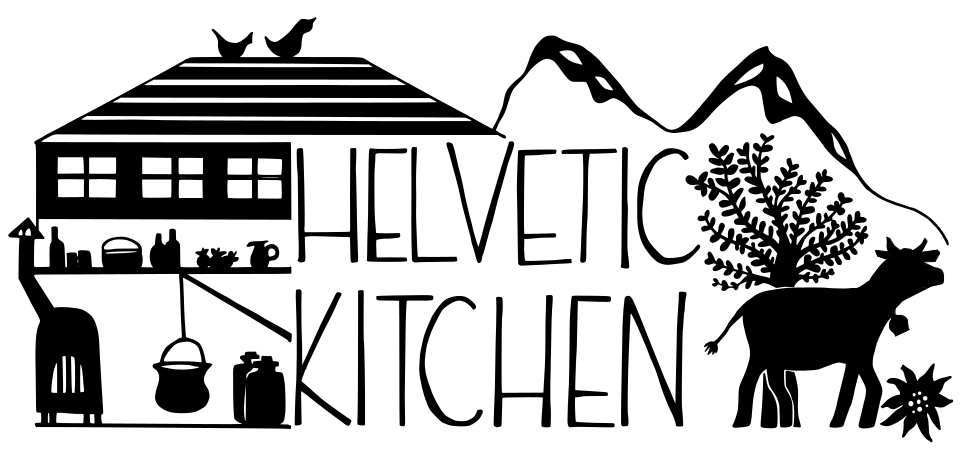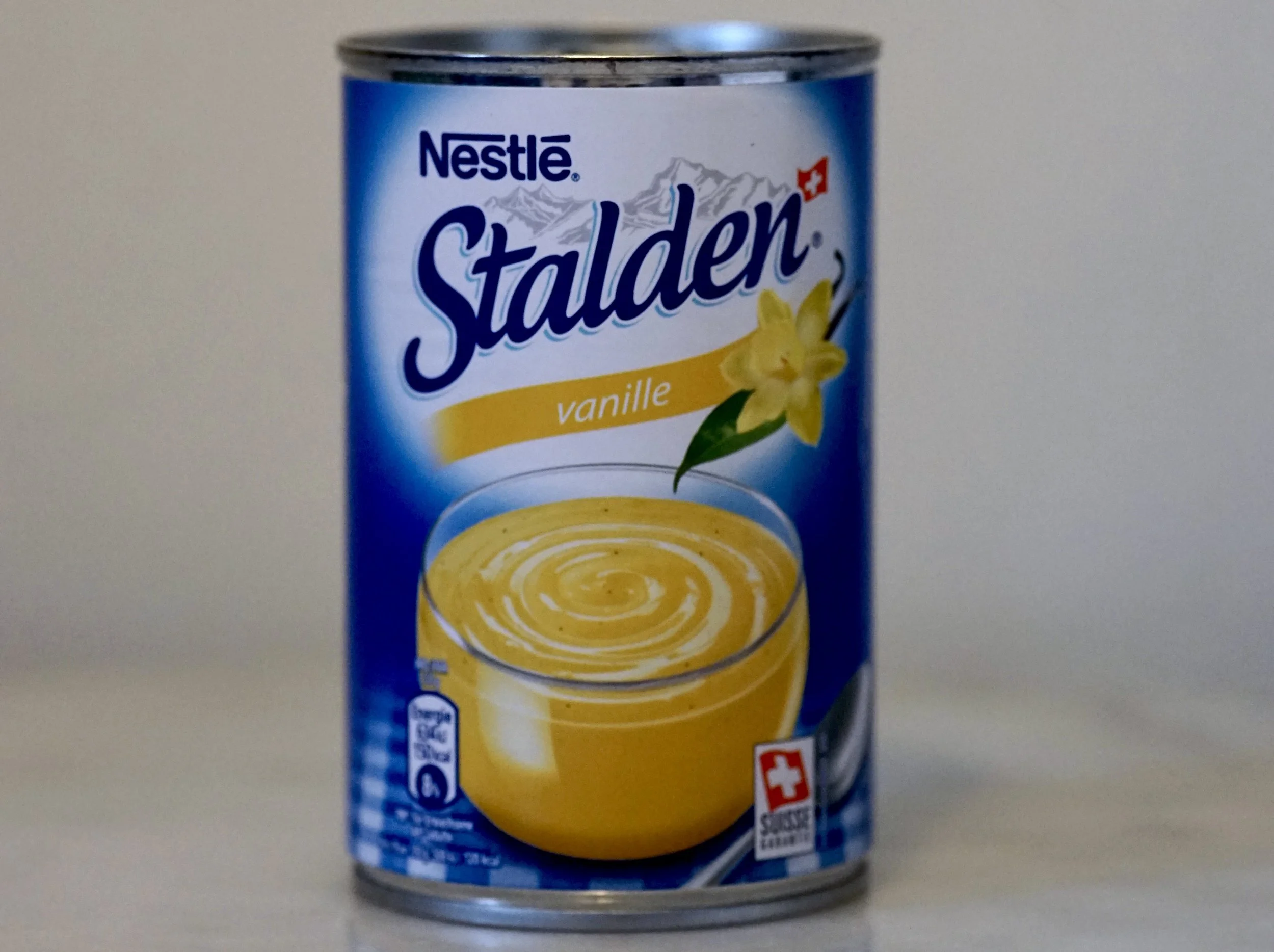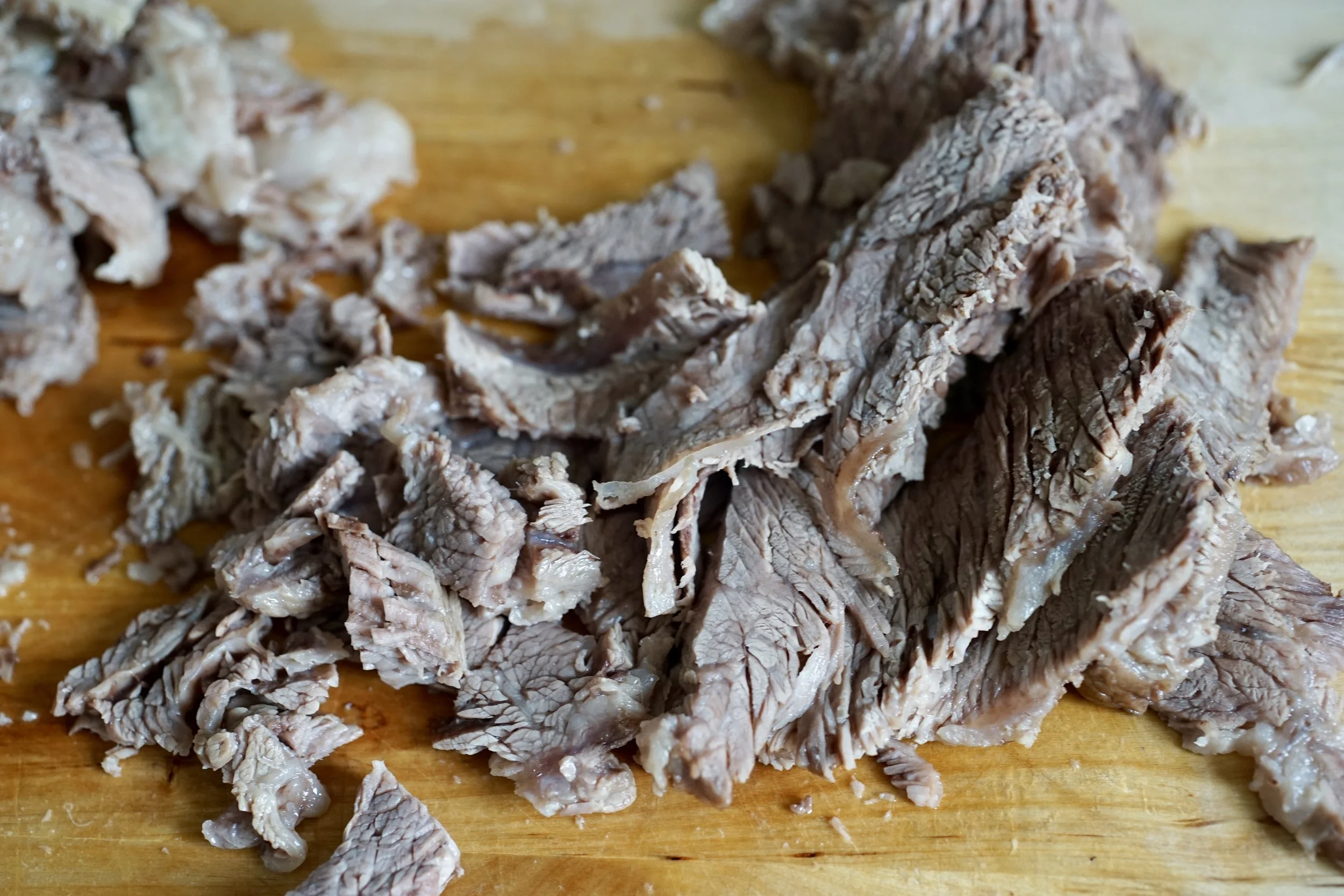Birnenhonig
Once referred to as poor man's honey, this is a syrup of similar consistency made from pears. It can be used interchangeably with honey in most dishes, lending a markedly fruity taste.
Birnenhonig is most often seen throughout central Switzerland, notably in the cantons of Luzern and Zug. There is a similar product in the Romandie, Vin Cuit, which is syrup made from a concentration of pear, apple or grapes.
Its applications vary. According to Sam, no meal of Gschwellti (boiled potatoes) and cheese would be complete without Birnenhonig.
Children stir it into warm milk. It makes an excellent sweetener for Birchermüesli and sometimes I use it in the place of honey in a salad dressing or marinade. And it is the key ingredient in a Lucernese classic: Lebkuchen.
You also see Birnenhonig sold as Birnendicksaft or ‘Birnel’. Although it can be used the same way as Birnenhonig, Birnel is slightly different—during production some of its acid is removed, which gives it a lighter colour and a slightly less sour taste.
Birnel was also originally used as a way for the government to prevent alcohol abuse.
In 1932 the Swiss government introduced a new law regulating the production, distribution, sale, and consumption of alcohol. Government support was offered for farmers who turned their potatoes and pears into food products (like Birnel) instead of schnapps.
The Swiss government wasn't only looking to combat alcoholism, but also poverty, which is why in 1952, Winterhilfe, a Swiss anti-poverty organization with a big network of distributors, started selling the product. Proceeds from the sale of Birnel went (and still go) to Swiss families in need.
Although now it is readily available at most supermarkets, you can also still buy Birnel directly from Winterhilfe. The very best Birnenhonig, however, can be found in the market stalls of central Switzerland.







